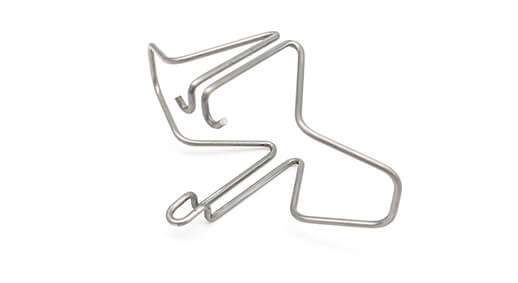Get unique, complex parts easily. No matter your requirements, Chaoyi Spring creates hard-to-produce coil springs and wire forms.
Let us help you create the custom wire form you need, from S-hooks and J-hooks to utility hooks and more.
We work closely with customers across a wide range of industries, helping them design and manufacture made-to-order parts.
Why choose Chaoyi Spring? We prioritize customer-focused collaboration, modern equipment and the latest technology to make your parts per print.
Find the information and guidance you need, from measuring a spring to learning about materials, placing an order and much more.
Choosing the right springs for your garage door is crucial for its smooth operation and safety. You have two main options: tension springs and torsion springs. Both types offer advantages


Choosing the right springs for your garage door is crucial for its smooth operation and safety. You have two main options: tension springs and torsion springs. Both types offer advantages and disadvantages, and the best choice depends on your specific needs and preferences. This article will delve into the differences between these spring types, their pros and cons, and help you determine which one is the ideal fit for your garage door.

Tension springs, often referred to as extension springs, are located on each side of the garage door, extending vertically from the track. These springs are under constant tension, and as the door opens, the springs stretch, storing energy. This stored energy is then released when the door closes, helping to counterbalance the weight of the door.
Here are some key advantages of tension springs:
However, tension springs also come with some drawbacks:
Torsion springs are located above the garage door, typically attached to a shaft that runs horizontally along the ceiling. These springs work by twisting, storing energy as the door opens. As the door closes, the stored energy is released, providing the force needed to lift the door.
Torsion springs offer several advantages:
However, torsion springs do have some drawbacks:
So, which type of spring is right for you? The answer depends on a few key factors:
Beyond the type of spring, there are other factors to consider when it comes to your garage door:
Understanding the pros and cons of tension and torsion springs empowers you to make an informed decision that aligns with your garage door's needs and your preferences. Remember, prioritizing safety and considering the overall cost of ownership are key aspects to weigh when choosing the ideal spring system for your garage door.
Remember, a properly functioning garage door contributes to a safe and secure home. Don't hesitate to seek professional help if you have any doubts or uncertainties about your garage door springs. A qualified garage door technician can provide expert advice, ensure proper installation, and guarantee the safe and reliable operation of your garage door.
Browse some of the custom wire forms and springs that we manufacture. Don’t see what you need? We specialize in made-to-order products that meet your application requirements.
Visit Our GalleryNeed a custom wire form or coil spring? We make it work. Fill out the contact form and a representative will respond within 1 business day. If you have a PDF or CAD file, you can submit to request a quote.